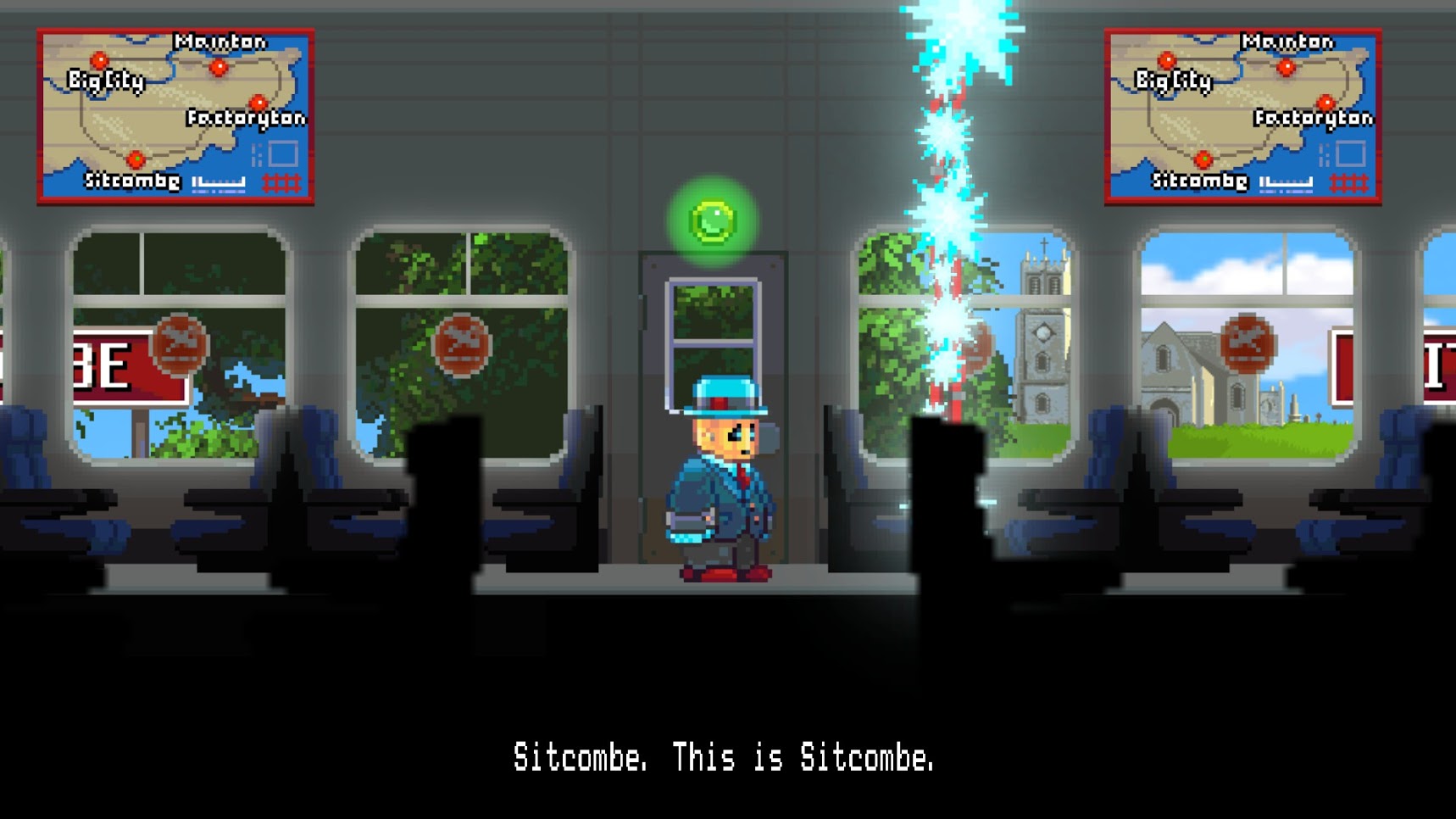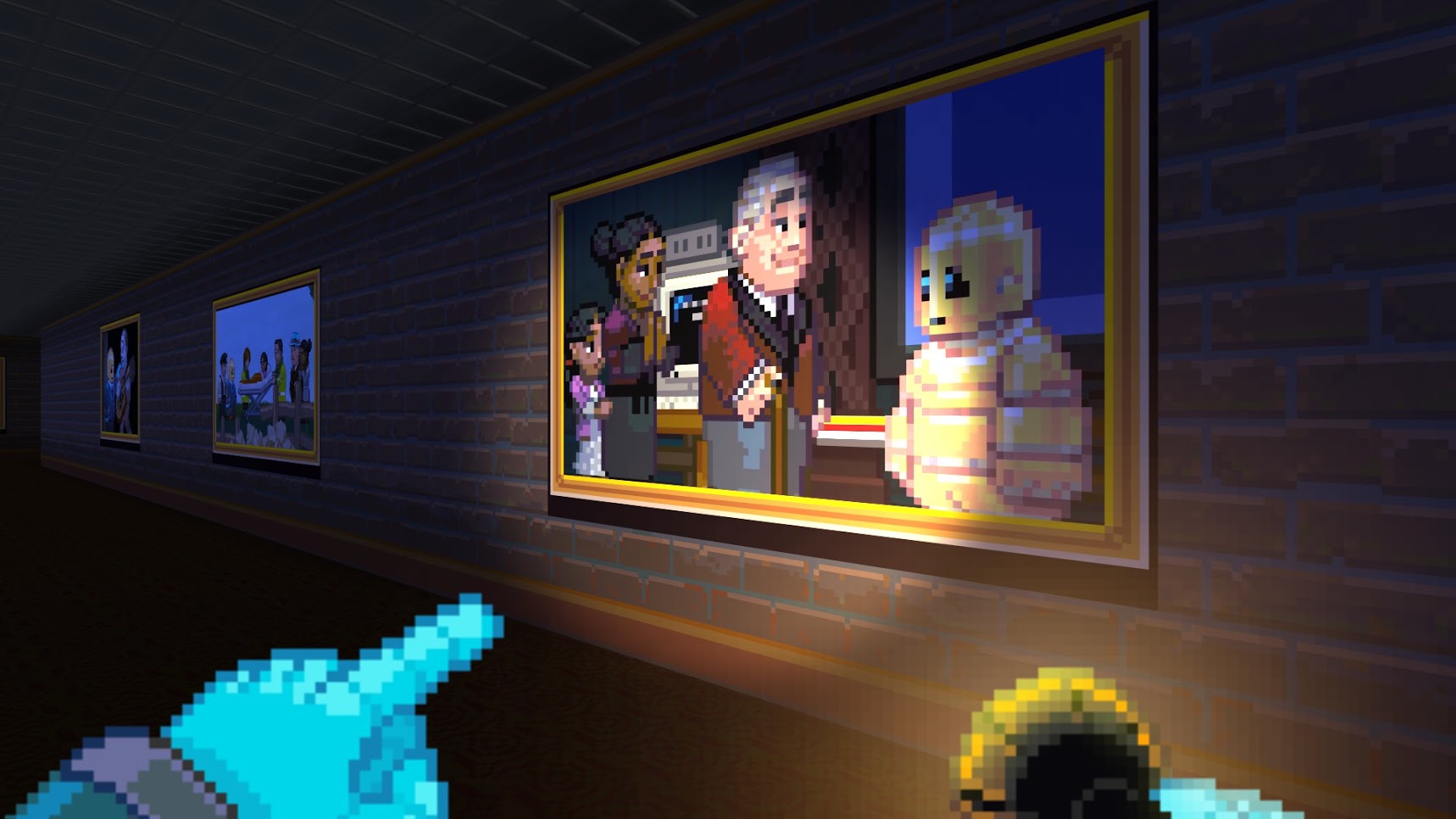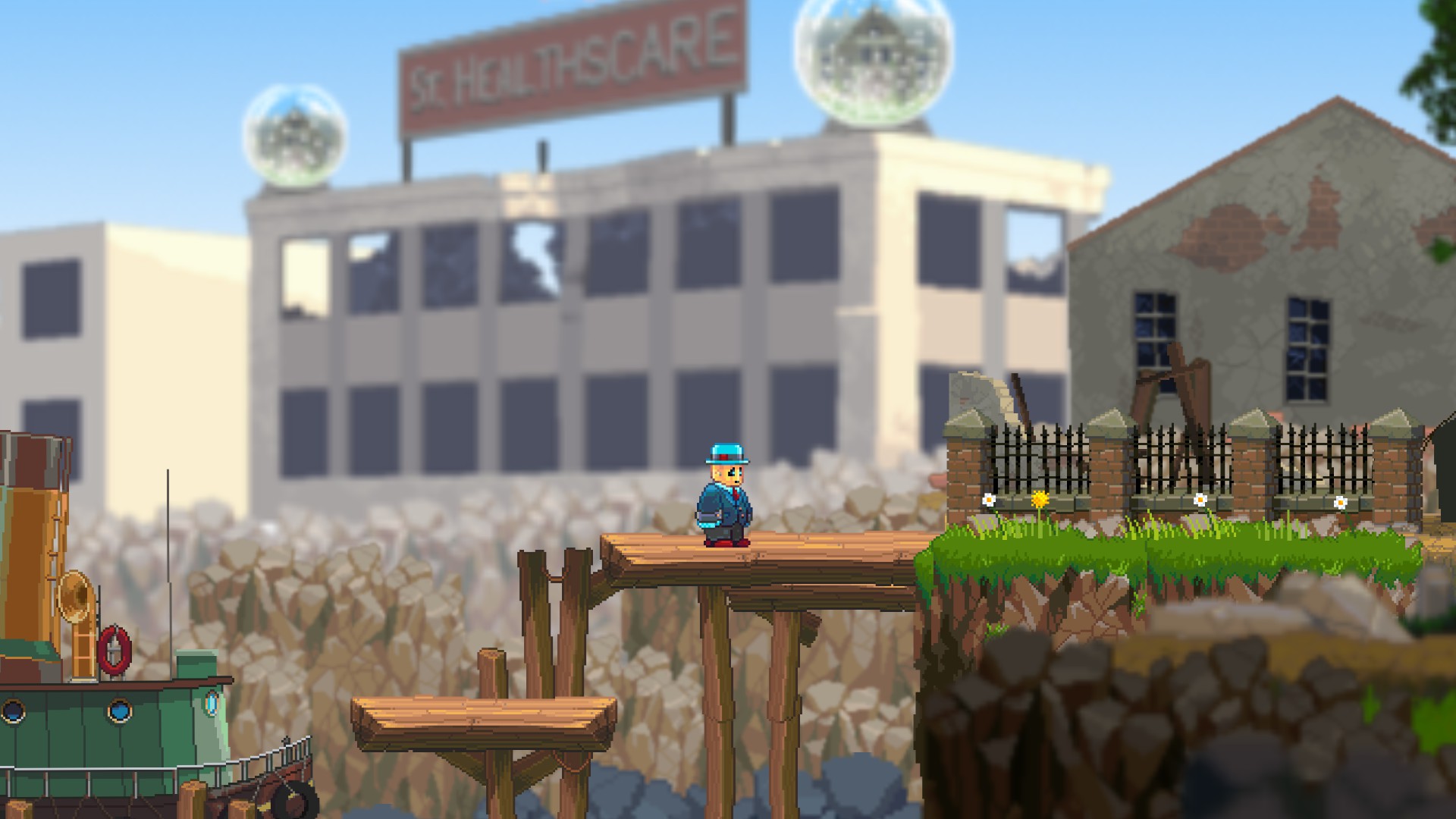Horace is a massive platformer with an even bigger heart
Bicentennial Man, Super Meat Boy and Metroid walk into an 80s Sitcom bar.

Six hours into Horace and after several genre shifts, I officially gave up trying to predict what this narrative-driven adventure was hiding up its sleeve next. What started as a gentle if cutscene-heavy platformer about a robot butler and his quest to clean up rubbish had metamorphosed into a grand, generation-spanning adventure, dense with pathos, some dark humour, plus some genuine tragedy when you least expect it. Best, then, to go with the flow and see where the story took me.
If it weren’t for some friends’ glowing recommendations, I probably would have missed out on Horace myself. Its first hour or so is gentle, comfortable and vaguely meandering, but it’s just lulling you into a false sense of security. Friendly yellow robot Horace is ‘born’ into a wealthy family, and the entire story (dialogue and all) is narrated in the first person in his sharp mechanical monotone. It’s schmalzy stuff. Simple platform obstacle courses punctuated with gentle platforming challenges and cheerful cutscenes of him growing closer to his human family and developing a love of classical music, old TV and videogames.
Just when you feel like the game is coasting, everything changes. I won’t spoil exactly what happens, but any sense of safety and domestic sitcom life comes to a sudden, violent end. After a lengthy cutscene, the game plunges you into the ruins of Horace’s former life. Even the platforming suddenly becomes tougher and more complex, as you have to navigate conveyor belts and buzzsaws with the aid of some gravity bending shoes. It’s just the first of a dozen narrative and mechanical twists the game has in store before the credits roll, and there’s a lot of time for it to mix things up; most players clock the game at 15 or more hours long, and the difficulty never lets up.
A few levels later and somehow Horace (the game, not the character) had grown into a non-linear monster. Suddenly there are boss fights, physics-driven puzzling, towns to explore, and shops, and an economy, and trains I need tickets to ride. There are rhythm mini-games to play in order to scrape together the money required, stealth segments, rail shooters, retro game parodies and a whole lot of mileage. Horace feels like what happens when a developer has far too many ideas, the skills to implement them all, and nobody to tell them to stop.
It’s of little surprise that Horace is a passion project. Two men have been hammering away at this mad sci-fi comedy epic for almost six years, and it feels like a work of singular, bizarre vision. Bicentennial Man filtered through a lens of old British TV and 8/16-bit era games. I’m at the older end of the millennial spectrum, and references to the likes of Steptoe And Son and Auf Wiedersehen, Pet nearly flew over my head. Is Horace an intense precision platformer for the over-forties crowd? Quite possibly, although there’s enough contemporary humour to provide giggles if you’re under thirty. Most of it is extremely British, however.

Even if stripped of all its charming story, deadpan robotic narration and colourful characters, Horace would probably still be worth the price. There’s a bit of Super Meat Boy spirit to its platforming. There’s some real Mario-like weight to Horace himself, but he’s quite capable of bouncing from wall to wall, over and under lasers and sawblades. The levels are cleverly designed too, leveraging all the abilities you’ve hoarded over the course of the game, but never getting away from the basics. From early on until the end, you’ve always got to be careful just how high you jump, as trap-lined ceilings are a regular fixture. Horace’s (mostly optional) quest to clean up all the rubbish in the world means that every piece of oddly placed junk is a collectable, too, so there’s plenty of temptation to explore into every dangerous little corner.
While tough, I never found Horace too frustrating. Checkpoints are frequent, and death immediately zaps you back to the last checkpoint touched. In the few areas that expect you to play at your best for longer, there’s a basic lives system that lets you tank an otherwise-lethal hit or two. If you die repeatedly, the game even adjusts the difficulty a little and offers more lives to pick up along the way. Even if you took away everything but the nuts and bolts at the heart of the machine, Horace would still be an excellent game. Wrapped in cheeky humour, heartfelt storytelling and constant mechanical and tonal shifts, it might just be a classic.
The biggest gaming news, reviews and hardware deals
Keep up to date with the most important stories and the best deals, as picked by the PC Gamer team.

If I absolutely had to pick at Horace’s robo-nits, I’d grumble that sometimes (albeit not often) direction and jump inputs get ‘eaten’, though that may also be the fault of my hard-worn controller. The soundscape of the game can also be a little harsh, especially the sounds for dying and picking up trash. Lastly, the game’s final act feels a little oddly paced, but in a game that tries to cram in everything and fifty kitchen sinks (to sell for scrap), I’ll forgive it. Beyond that, this is a massive, funny, pathos-laden and ambitious game that hits almost every target it shoots for. If you don’t mind some tricky platforming, Horace has my highest recommendation.

The product of a wasted youth, wasted prime and getting into wasted middle age, Dominic Tarason is a freelance writer, occasional indie PR guy and professional techno-hermit seen in many strange corners of the internet and seldom in reality. Based deep in the Welsh hinterlands where no food delivery dares to go, videogames provide a gritty, realistic escape from the idyllic views and fresh country air. If you're looking for something new and potentially very weird to play, feel free to poke him on Twitter. He's almost sociable, most of the time.

